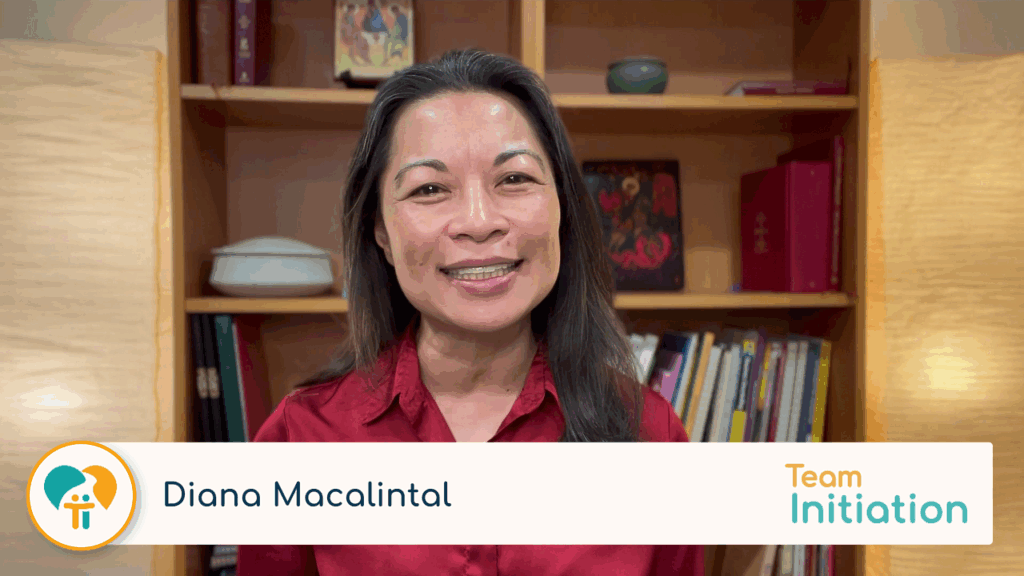One of the most powerful aspects of the Order of Christian Initiation of Adults is its emphasis on immersing those seeking Christ into a living, active parish community. The rite teaches that faith is not merely a set of intellectual beliefs, but a way of life that is learned through participation and example.
The Mystical Body of Christ
OCIA 75.2 says:
Becoming familiar with the practice of Christian life, helped by the example and support of sponsors and godparents, and indeed of the faithful of the entire community, [the catechumens] grow accustomed to praying more easily to God, witnessing to the faith, keeping an expectation of Christ in all things, following inspiration from above in their works, and showing charity to their neighbor even to renunciation of themselves.
What a powerful vision! The catechumens’ conversion is facilitated by rubbing shoulders with the Catholic community that is the Mystical Body of Christ. It is through walking alongside their sisters and brothers in Christ, observing how they pray, stay hopeful, give witness, and share love, that the spark of faith is fanned into a blaze.
A local expression
In the context of the catechumenate, “community” refers primarily to the parish itself — that local expression of the Body of Christ united around word and sacrament.
Pope Francis said of the local parish:
Sometimes I think that we should put a sign on the door of parishes that says, “Free admission.” Parishes should be close-knit communities, without bureaucracy, people-centered — a place where the gift of the sacraments can be found. They have to become once again schools of service and generosity, with their doors always open to those who are excluded.” (February 2023)
It is within this spiritual family that catechumens learn the rhythms and practices of discipleship.
Of course, every parish community is flawed and imperfect, a motley crew of sinners who often fail to live up to their baptismal promises. Sometime we look at our own parishioners and wonder how these people could ever be effective witnesses to the faith. But this is precisely the point. Catechumens do not need a perfect community to teach them the faith, but a real one — however messy — that is trying to walk the gospel path together.
The more connections we can make, the more immersed the catechumens will be in the life of the parish — its prayer, fellowship, service, and outreach.
4 ways to connect catechumens with community life
So how can parish catechumenate teams work to fulfill the directive of paragraph 75.2, immersing catechumens into the life of community life? Here are a few practical ideas:
- Welcome catechumens into the liturgical life of the parish. Have them attend Bible studies, participate in devotions, participate in service projects, and participate in the social life of the parish
- Encourage parishioners to prayerfully consider taking on the role of parish sponsor or godparent, walking beside a catechumen on their journey of faith
- Foster informal social connections by hosting regular hospitality sessions where catechumens can mingle with parishioner volunteers; ask parishioners to host a catechumen for dinner in their homes
- Have their sponsors bring catechumens to the different parish ministries and small groups; ask the leader of each ministry or group to explain how they tie into the mission.
The more connections we can make, the more immersed the catechumens will be in the life of the parish — its prayer, fellowship, service, and outreach. And as RCIA 75.2 reminds us, this full immersion is pivotal for developing “a progressive change of outlook and morals, [which] must become evident in its social consequences.”
Fostering outward-focused parishes
If we take this challenge seriously, we may see small “miracles” begin to happen. Catechumens’ hunger for spiritual community could start rippling outward, reinvigorating lukewarm parishioners and drawing others into deeper engagement. We could witness revived energy for hospitality, service, and prayer as the newest members remind us long-term Catholics of the joy of our faith. The seekers’ presence may even shake us out of our complacency and satisfaction with “the way we’ve always done it.”
Ultimately, this is a paradigm shift that will lead to more cohesive, outward-focused parishes, where new and old alike become zealous about proclaiming the good news. The catechumens will become missionary disciples, and the rest of us will be renewed and transformed as well.
Learn more about 75.2
Join Team Initiation members this Wednesday, June 12, 11:00am PDT for a deeper discussion of OCIA 75.2. Joe Paprocki, DMin. National Consultant for Faith Formation at Loyola Press, is going to share with us about the importance of immersing seekers in the joys and challenges of Christian community life.
For over 40 years, Joe has pioneered innovative ways to form communities of faith. He has authored over 20 books (including his most recent, 8 Steps to Energize Your Faith) and presented workshops and trainings in more than 150 dioceses.
(This event is open only to Team Initiation members. Click here to learn more about membership. Get a 30% discount on membership if you sign up before the end of June.)


















